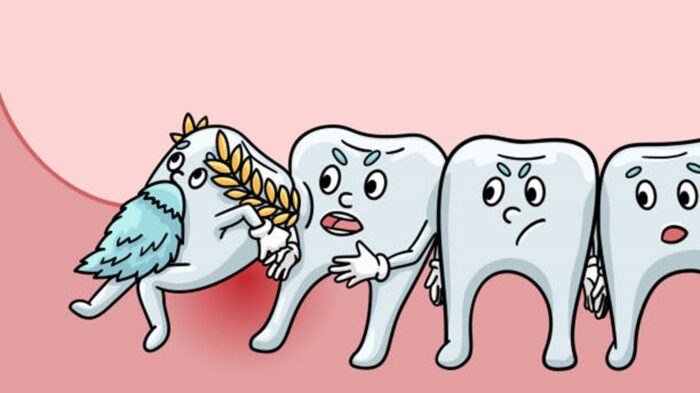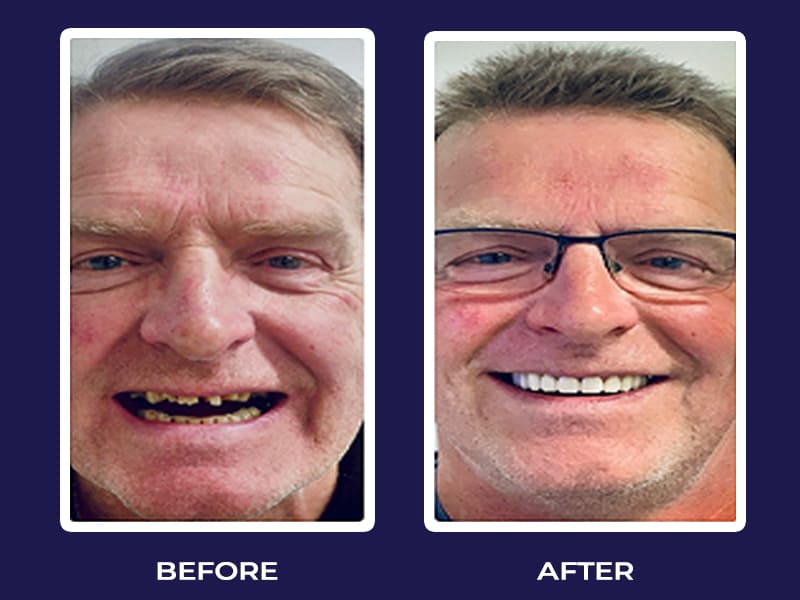
Everything You Need to Know About Wisdom Tooth Extractions
July 2, 2024
Wisdom teeth, also known as third molars, are the last set of teeth to emerge in the mouth, usually appearing between the ages of 17 and 25. While some people are fortunate enough to experience no issues with their wisdom teeth, others may encounter a variety of problems that necessitate a wisdom tooth extraction.
Why Do Wisdom Teeth Cause Problems?
One of the main reasons wisdom teeth can cause problems is because of a lack of space in the mouth. When there isn’t enough room for these teeth to emerge properly, they may become impacted. Impacted wisdom teeth can grow at odd angles, pushing against other teeth, which can lead to wisdom tooth pain and even damage to neighbouring teeth.
When is a Wisdom Tooth Extraction Necessary?
A wisdom tooth extraction may be recommended by your dentist if you experience any of the following issues:
● Pain or discomfort – Persistent wisdom tooth pain or wisdom teeth pain is a common sign that these teeth may need to be removed.
● Infection or gum disease – Partially erupted wisdom teeth can create a flap of gum tissue that traps food and bacteria, leading to infections.
● Cysts or tumours – In rare cases, impacted wisdom teeth can cause cysts or even tumours, which can damage the jawbone and surrounding teeth.
● Tooth decay – Due to their position at the back of the mouth, wisdom teeth can be challenging to clean properly, leading to tooth decay.

The Wisdom Tooth Extraction Process
Before the extraction, your dentist will take an X-ray to assess the position of the wisdom teeth and the condition of your surrounding teeth and bone. The procedure itself usually involves the following steps:
1. Anaesthesia – Your dentist will administer a local anaesthetic to numb the area. In some cases, sedation may be used, especially if you are scared of the dentist or suffer from dental phobia.
2. Extraction – The dentist will make an incision in the gum tissue to expose the tooth and bone. The tooth may be divided into sections to make it easier to remove.
3. Stitches – If necessary, stitches will be used to close the extraction site and promote healing.
Aftercare and Recovery

Post-extraction care is crucial for a smooth recovery. Here are some tips to follow:
● Rest – Take it easy for the first few days to allow your body to heal.
● Ice packs – Apply ice packs to reduce swelling.
● Soft foods – Stick to soft foods and avoid anything too hot or spicy.
● Oral hygiene – Gently rinse your mouth with salt water, but avoid brushing directly over the extraction site.
Finding the Right Dentist
If you’re experiencing wisdom tooth pain and believe you might need a wisdom tooth extraction, it’s essential to find a trustworthy dental professional. Whether you’re looking for an NHS dentist or a private practice, Smile Circle can help. We recommend a variety of dental professionals, including dentists in Hampshire and dentists in Dorset, who are skilled in handling wisdom teeth issues.
If you’re feeling anxious about the procedure, know that many dentists specialise in helping patients who are scared of the dentist or have dental phobia. They can provide the necessary support and sedation options to make the experience as comfortable as possible.
Conclusion

Dealing with wisdom teeth pain or considering a wisdom tooth extraction can be daunting, but understanding the process and knowing where to find reliable care can make a significant difference.
For those seeking a tooth extraction referral or simply searching for “tooth extraction near me,” Smile Circle is here to assist. Our network of private and NHS dentists, specialising in both cosmetic and general dentistry, is ready to help you with all your dental needs.
For more information on finding a dentist near you, visit smilecircle.com. Let Smile Circle connect you with a dental professional you can trust.
Here Are Some Relevant Pieces You Can Read About Wisdom Tooth Extr
- Can You Be Too Old To Have Your Wisdom Teeth Extracted
- Your Dental Health Gives A Glimpse Of Your Overall Health
- why tooth extraction is a last resort in modern dentistry
- how long does it take for a wisdom tooth extraction to heal
- understanding tooth extractions
- why fewer people have wisdom teeth nowadays
- understanding oral development when do teeth and jaws fully develop

 Head Office - UK - Unit 1 B 132 Weyhill Road, Andover, Hampshire England, SP10 2PR.
Head Office - UK - Unit 1 B 132 Weyhill Road, Andover, Hampshire England, SP10 2PR. 









